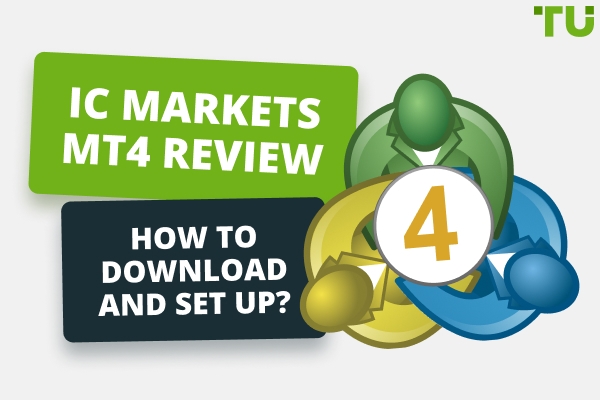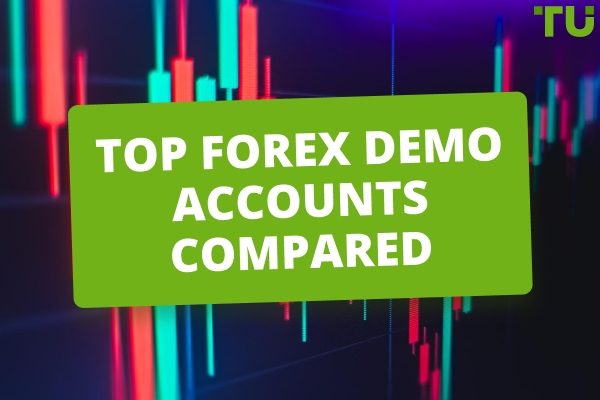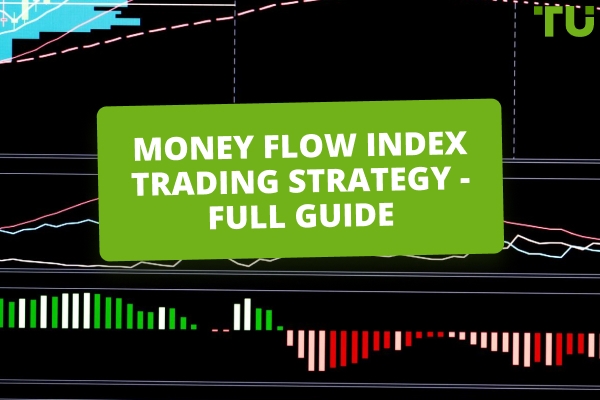
IC Markets vs Vantage - Fees Review Included
IC Markets offers lower spreads from 0.0 pips with a $3.50 commission per lot, while Vantage has similar spreads but a $3.00 commission. Both charge swap fees, but IC Markets has lower non-trading costs. IC Markets suits scalpers, while Vantage is ideal for cost-conscious traders.
Which broker is better: IC Markets or Vantage? Our expert assessment conducted according to TU’s own methodology showed that IC Markets is one of the top brokers in the financial market with the TU Overall Score of 8.33 out of 10. Vantage is one of the top brokers in the financial market with the TU Overall Score of 7.47 out of 10. Find out more about TU Overall Score.
IC Markets vs Vantage - overall ranking
Many traders read Vantage and IC Markets reviews to compare these brokers, often focusing on factors like trading conditions, execution speed, and customer support. While both have earned a strong reputation, IC Markets is known for its deep liquidity, whereas Vantage is appreciated for its easy-to-use platform and strong educational tools.
When looking into Vantage and IC Markets trading, traders often consider spreads, leverage, and available instruments. IC Markets offers some of the lowest spreads, making it a favorite for scalping strategies. On the other hand, Vantage balances trading costs with accessibility, making it a great option for traders using various strategies.
For those deciding on the best broker between Vantage and IC Markets, the choice depends on what each trader prefers. IC Markets is a top pick for high-frequency traders and professionals, while Vantage is ideal for those looking for an accessible and beginner-friendly platform.
IC Markets vs Vantage - overall ranking
| Feature | IC Markets | Vantage |
|---|---|---|
Overall | 4.7 | 4.4 |
Regulation | 5 | 4.2 |
Fees | 4.9 | 4.6 |
Trading assets | 4.6 | 4.4 |
Investment instruments | 4.9 | 4.6 |
Platforms and charting tools | 4.4 | 4.5 |
Deposit and withdrawal | 4.6 | 4.4 |
Research | 4.3 | 3.9 |
Education | 4.4 | 4.7 |
Support | 4.6 | 4.1 |
Bonuses | 2.5 | 4.4 |
Open an account |
IC Markets vs Vantage: pros and cons
IC Markets
Founded in 2007 in Sydney, Australia, IC Markets is regulated by the Australian Securities and Investment Commission (ASIC) and operates under the Australian Financial Services License (AFSL). It is also a member of the Australian Financial Complaints Authority (AFCA) to meet industry standards for resolving disputes. Regular audits enhance its credibility as a trusted broker.
Vantage FX
Vantage FX, launched in 2009, is an STP broker offering Forex pairs and CFDs on stocks, commodities, and indices from global markets, including the US and Europe. Licensed by regulators in the UK (FCA), Australia (ASIC), Vanuatu (VFSC), and the Cayman Islands (CIMA), Vantage FX has earned 11 awards for its services.
When traders conduct a Vantage and IC Markets comparison, they often look at trading conditions, regulations, and platform usability. IC Markets is preferred for its tight spreads, deep liquidity, and fast execution, which makes it a strong choice for scalpers and algorithmic traders. Meanwhile, Vantage is popular among beginners for its bonus offers and a broader selection of trading instruments.
To explore the Vantage and IC Markets pros and cons, traders should consider their needs. IC Markets stands out with professional-grade features, while Vantage is more beginner-friendly with its flexible offerings. The right choice depends on individual trading strategies and goals.
IC Markets vs Vantage: pros and cons
| Pros and cons | IC Markets | Vantage |
|---|---|---|
Overall pros | World biggest Forex broker, over 180,000 clients and $1.11 trln monthly turnover in 2022 | The broker has licenses from four reputable regulators |
Advanced ECN trading | Free trading signals for traders, regardless of the type of trading account | |
Order execution speed 40 mc | Fantabulous bonus policy and terms of its affiliate program | |
Free VPS | 3 copy trading platforms support | |
Trading servers in New York and London | ||
Strong regulation | ||
2000+ trading assets, 60+ currency pairs | ||
EUR/USD average spread 01 pip | ||
Overall cons | No Forex bonuses | Customers from most countries are forced to cooperate with a branch that has an offshore license |
World biggest Forex broker, over 180,000 clients and $1.11 trln monthly turnover in 2022 | Limited education and a lack of information on Forex trading | |
Snail-paced withdrawal of funds with the requirement to comply with special conditions |
IC Markets vs Vantage: safety and regulation
Both IC Markets and Vantage operate under strict regulatory frameworks, ensuring compliance with global financial standards. While Vantage and IC Markets are regulated by reputable authorities such as ASIC, traders should always verify the latest regulatory updates before choosing a broker. Understanding the licensing and investor protection measures of each broker helps traders make informed decisions while ensuring a secure trading environment.
IC Markets vs Vantage: safety and regulation
| Regulated By: | IC Markets | Vantage |
|---|---|---|
Max. Regulation Level | Tier-1 | Tier-1 |
Investor protection | €20,000 | €20,000 |
FCA UK regulation | No | No |
FINRA (U.S) | No | No |
BaFin (Germany) | No | No |
ASIC (Australia) | Yes | Yes |
CFTC (U.S) | No | No |
MAS | No | No |
FSCA SA | No | No |
BVI FSC | No | No |
VFSC | No | No |
FSA (Seychelles) | Yes | Yes |
IC Markets vs Vantage: trading conditions
Both Vantage and IC Markets provide trading conditions that attract many traders. When comparing the trading conditions at Vantage and IC Markets, it’s worth looking into factors like spreads, leverage, and available instruments since they affect your trading results and overall experience.
Choosing between the Vantage and IC Markets platform depends on your trading preferences. IC Markets lets traders use widely-used platforms like MT4, MT5, and cTrader, offering advanced tools for flexibility. Meanwhile, Vantage includes its proprietary app alongside MT4 and MT5, designed for traders who value simplicity or advanced options.
For both new and experienced traders, the Vantage and IC Markets minimum deposit is set at $200, making trading accessible for everyone without requiring a significant upfront investment.
IC Markets vs Vantage: safety and regulation
| Trading conditions | IC Markets | Vantage |
|---|---|---|
Minimum deposit | $200 | $200 |
Trading platforms | MT4, MT5, cTrader | Vantage FX app, МТ4 (desktop, mobile, web), МТ5 (desktop, mobile), WebTrader |
Max leverage (Futures) | 1-500 | 1-500 |
Supported markets | Forex, futures, CFDs on indices, commodities, metals, stocks and bonds | Currency pairs (44), CFDs on stocks (226), indices (16), and commodities (19) |
Trading assets | 2000+ | 400+ |
Trading accounts | cTrader, Raw Spread, Standard | Demo, Standard STP, Pro ECN, RAW ECN |
Base account currencies | USD, AUD, GBP, CHF, JPY, NZD, SGD, CAD, HKD, BTC | AUD, USD, GBP, EUR, SGD, and CAD |
IC Markets vs Vantage: fees
Understanding the Vantage and IC Markets fees is important for traders who want to control their costs. Both brokers offer low commissions and competitive pricing, but they excel in different areas. Vantage is known for offering slightly lower commission fees on its ECN accounts, while IC Markets attracts scalpers with its ultra-tight ECN spreads.
When comparing the Vantage and IC Markets spreads, both brokers deliver tight pricing to help traders save on costs. IC Markets offers tighter spreads, especially for major currency pairs, while Vantage balances low spreads with competitive commission rates, making it a versatile option for various trading strategies.
Choosing the right Vantage or IC Markets account depends on your trading style and goals. IC Markets provides Raw Spread and Standard accounts that work well for scalpers and high-frequency traders. On the other hand, Vantage offers options like RAW ECN and Pro ECN accounts, meeting the needs of both new and seasoned traders.
IC Markets vs Vantage: fees
| Fees | IC Markets | Vantage |
|---|---|---|
Standard acc. spread EUR/USD, min pips | 0,8 | 0,8 |
Standard acc. spread EUR/USD, max pips | 1,0 | 1,0 |
ECN commission | 3,5 | 3,5 |
ECN spread EUR/USD | 0,1 | 0,1 |
Deposit fee, % | No | No |
Withdrawal fee, % | No | No |
Withdrawal fee, USD | No | No |
Inactivity fee, $ | No | No |
A conversion fee may be applied as withdrawals and deposits are conducted in USD. Any other currency will have to be converted.
IC Markets vs Vantage: trading assets
When exploring Vantage and IC Markets trading, both brokers provide varied trading opportunities. IC Markets offers a wider range of assets, including ETFs and bonds, while Vantage is geared toward straightforward trading with Forex, CFDs, and commodities.
For those trading Forex, Vantage and IC Markets give traders a range of currency pairs to trade. With tight spreads and high leverage options, both brokers are suitable for traders at all experience levels. This makes Forex trading at Vantage and IC Markets a great choice for anyone looking for flexible and affordable trading.
IC Markets vs Vantage: trading assets
| Asset name | IC Markets | Vantage |
|---|---|---|
Overall | 2000+ trading assets | 400+ |
Forex | Yes | yes |
Stocks | Yes (CFD) | Yes (CFD) |
Metals | Yes (CFD) | Yes (CFD) |
Cryptocurrencies | Yes (CFD) | Yes (CFD) |
Energy | Yes (CFD) | Yes (CFD) |
Indices | Yes (CFD) | Yes (CFD) |
ETFs | Yes (CFD) | No |
Bonds | Yes (CFD) | No |
Mutual funds | No | No |
Stock options | No | No |
Futures Trading | Yes (CFD) | No |
Binary Options | No | No |
IC Markets or Vantage: investment programs
For traders looking to expand their trading options, Vantage and IC Markets provide a range of investments programs designed for various trading styles. IC Markets offers MAM/PAMM accounts tailored for professional fund managers, while Vantage focuses on copy trading options that are a good fit for those new to trading.
When comparing the Vantage and IC Markets investments programs, it’s helpful to think about your trading skills and preferred approach. IC Markets is suited for professionals managing multiple accounts with advanced tools and flexibility. Meanwhile, Vantage simplifies trading for beginners by making it easy to follow experienced traders’ strategies through structured copy trading.
IC Markets or Vantage: investment programs
| Investments programs | IC Markets | Vantage |
|---|---|---|
Copy Trading | Yes | Yes |
MAM/PAMM | Yes | No |
Managed Accounts | No | No |
Other | No | No |
Trading platforms: Vantage or IC Markets
For traders comparing Vantage and IC Markets trading, the choice of platform plays a crucial role in execution speed, available tools, and trading flexibility. IC Markets provides access to cTrader in addition to MT4 and MT5, while Vantage focuses on a streamlined experience through its own Vantage FX platform.
Choosing the right Vantage or IC Markets platform depends on a trader’s strategy. Those who prefer deep market liquidity and advanced execution models may lean toward IC Markets, while traders who value an intuitive interface with strong mobile accessibility may find Vantage’s platform more suitable.
Trading platforms: Vantage or IC Markets
| Trading platforms | IC Markets | Vantage |
|---|---|---|
MT4 | Yes | Yes |
MT5 | Yes | Yes |
cTrader | Yes | No |
Appropriate platform | IC Markets terminal | Vantage FX |
Others | No | No |
IC Markets vs Vantage: deposit and withdrawal methods
Vantage and IC Markets offer secure options for withdrawals, including bank transfers, credit/debit cards, and cryptocurrencies. Both brokers ensure flexibility for traders when accessing their funds. However, traders should keep in mind the processing times and potential conversion fees that may apply with specific payment methods.
For traders comparing the Vantage and IC Markets minimum deposit requirements, both brokers are highly accessible. Vantage requires a minimum deposit of $200, making it an excellent choice for traders starting with a smaller capital. Similarly, IC Markets also sets its minimum deposit at $200, providing access to competitive trading conditions and advanced trading platforms.
IC Markets vs Vantage: deposit and withdrawal methods
| Deposit and withdrawal method | IC Markets | Vantage |
|---|---|---|
Bank Wire | Yes | Yes |
Bank Card | Yes | Yes |
Neteller | Yes | Yes |
BTC | Yes | Yes |
Wise | No | No |
Payoneer | No | No |
USDT | Yes | Yes |
IC Markets vs Vantage: research
For traders who rely on market analysis, comparing Vantage and IC Markets research types is essential. IC Markets provides comprehensive chart analysis and trading ideas, while Vantage focuses on fundamental data and news feeds to keep traders informed about market trends. Choosing the right broker depends on whether a trader prefers technical or fundamental analysis as their primary research tool.
IC Markets vs Vantage: research
| Research type | IC Markets | Vantage |
|---|---|---|
News feed | Yes | Yes |
Fundamental data | Yes | Yes |
Chart analysis | Yes | No |
Trading ideas | Yes | Yes |
E-Mail reports | Yes | No |
IC Markets vs Vantage: education
When it comes to Vantage and IC Markets education, both brokers offer great learning tools for traders. These include webinars, articles, and video tutorials. While IC Markets focuses on detailed trading guides for more experienced traders, Vantage is geared towards helping new traders learn the basics through structured educational resources.
For those starting their trading journey, Vantage and IC Markets for beginners provide excellent options. Both brokers have demo accounts that help traders test strategies without risking money, along with educational materials to help traders get started with confidence. Choosing between the two often comes down to whether traders prefer hands-on practice or a more structured learning experience.
IC Markets vs Vantage: education
| Education type | IC Markets | Vantage |
|---|---|---|
Demo-account/Paper trading | Yes | Yes |
Webinars | Yes | Yes |
Articles | Yes | Yes |
Videos | Yes | Yes |
Cent account | No | No |
Vantage vs IC Markets: support
Traders often compare the IC Markets and Vantage live chat services when looking for quick and reliable responses. Both brokers offer real-time help through their websites, so traders can get quick and easy solutions. This feature is especially helpful for traders needing instant responses during trading hours.
As for customer service, the IC Markets and Vantage support systems provide dependable 24/5 assistance. IC Markets is often praised for resolving issues quickly, while Vantage stands out with its multilingual support team, making both brokers a good choice for different kinds of traders.
Vantage vs IC Markets: support
| Support features | IC Markets | Vantage |
|---|---|---|
Working days | 24/5 | 24/5 |
Yes | Yes | |
Phone | Yes | Yes |
Online chat | Yes | Yes |
Other | No | No |
IC Markets vs Vantage: Forex bonuses and promo
For traders looking to choose a platform, Vantage and IC Markets offer different opportunities. The offers from these brokers reflect their unique approaches — IC Markets prioritizes low spreads and top-notch trading features without providing promotional bonuses, while Vantage attracts traders with deposit bonuses, cashback programs, and exclusive gifts for frequent users.
When it comes to the Vantage and IC Markets bonus options, traders will find Vantage more appealing. Its welcome bonus and affiliate programs serve distinct trader preferences, making it ideal for those looking to boost their initial capital with additional benefits.
IC Markets vs Vantage: Forex bonuses and promo
| Promo | IC Markets | Vantage |
|---|---|---|
Forex bonus | Not offered | Initial deposit bonus Clients of the broker can receive a bonus upon the first deposit of 50% of the deposit amount. The maximum bonus amount is 20,000 USD. Funds are accrued in the form of trade credits that can be used to conduct transactions, increase margins, etc. |
Affiliate program | % of trading commissions | CPA affiliate program (CellXpert). This affiliate program provides a reward for traders who promote the broker's services. The size of the bonus differs depending on the country from which new traders come. The remuneration levels are as follows: 600 USD for clients from Germany, Denmark, Switzerland, UK, Norway, France, the Netherlands, Sweden, Austria, Ireland, and New Zealand; 400 USD for customers from Hong Kong, Finland, Italy, Portugal, UAE, Kuwait, Qatar, Saudi Arabia, Malaysia, Israel; 300 USD for clients from the Czech Republic, Slovak Republic, Poland, Taiwan, Colombia, Thailand, Mexico, Greece, South Africa; 100 USD for clients from other countries. The referred client is registered in the partner group if two conditions are met: Account replenishment for 500 USD; The trading turnover is at least two trading lots in the first month after registration. |
Other promos | Vantage FX encourages active traders by returning them some of the commissions in the form of cashback or rebate. Clients who fund their account in the amount of 10,000 USD and maintain the amount at this level can earn commissions up to 8 USD per lot traded. In addition, such customers can receive gifts from the broker, such as a gift card or iPhone. |
Conclusion
Both IC Markets and Vantage offer strong trading environments, but the best choice depends on individual needs. IC Markets is ideal for scalpers and professionals, offering low spreads and deep liquidity, while Vantage appeals to beginners with its bonuses and cashback rewards.
For fees and trading costs, IC Markets is more competitive, whereas Vantage offers more promotional incentives. Both brokers are regulated by ASIC, ensuring a secure trading experience.
Ultimately, the decision between Vantage and IC Markets depends on trading style, platform preference, and whether bonuses or lower fees are more important.
FAQs
What should I start Forex trading with?
It is desirable for novice traders to explore trading using a demo account to learn the market and how to work on the trading platform without the risk of suffering losses. At the same time, it is advisable to review the educational materials of the broker, learn trading basics. Then you can deposit the minimum required amount to perform a small number of transactions. If you manage to close several months in a row in the black, without substantial drawdowns on the account, then you can try increasing your deposit. Also trying to copy trades automatically is a good option for a start.
What amount should I start trading with?
The minimum deposit of $10 may be enough to trade on the cent account. However, for trading on Standard/ECT accounts, experts recommend starting with at least $200-500. With this amount, you can use not a very big leverage. Remember, getting carried away with the margin is the main cause of losses among beginners.
What should I take into consideration when choosing a broker?
Experts recommend looking at the broker’s reliability first and foremost. The other important features include basic trading conditions, commissions and fees, customer reviews. If brokers are approximately the same in terms of basic criteria, you need to choose based on your experience and tasks. One broker may be good for professionals and another – for novice traders.
Is it possible to be scammed by a broker with a license from a reputable regulator?
In theory, yes. But in practice, it takes so much time and money to comply with the requirements of reputable regulators that it is not worth it for scammers to bother obtaining a legitimate license.
Team that worked on the article
Parshwa is a content expert and finance professional possessing deep knowledge of stock and options trading, technical and fundamental analysis, and equity research. As a Chartered Accountant Finalist, Parshwa also has expertise in Forex, crypto trading, and personal taxation. His experience is showcased by a prolific body of over 100 articles on Forex, crypto, equity, and personal finance, alongside personalized advisory roles in tax consultation.
Chinmay Soni is a financial analyst with more than 5 years of experience in working with stocks, Forex, derivatives, and other assets. As a founder of a boutique research firm and an active researcher, he covers various industries and fields, providing insights backed by statistical data. He is also an educator in the field of finance and technology.
As an author for Traders Union, he contributes his deep analytical insights on various topics, taking into account various aspects.
Mirjan Hipolito is a journalist and news editor at Traders Union. She is an expert crypto writer with five years of experience in the financial markets. Her specialties are daily market news, price predictions, and Initial Coin Offerings (ICO).














